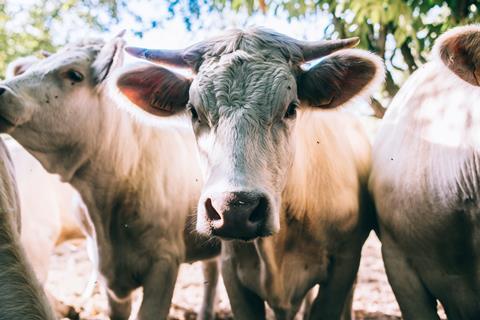
Environmental campaigners are raising the alarm over a new “greenwashing” approach to methane emissions reporting set to be adopted in New Zealand, which they say could hinder efforts to tackle global warming.
The conservative National Party government in New Zealand is expected to review its biogenic methane reduction targets with the goal of achieving so-called ‘no additional warming’, a benchmark critics argue will make individual companies and countries appear to be doing better in their emissions reduction efforts than in reality.
The “misuse of ‘no additional warming’ is effectively greenwashing”, argued senior policy and campaigns manager at Feedback Global, Martin Bowman. The measuring approach, he said, “focuses narrowly on the change in global warming impact of methane from a polluter – either country or company – compared to their warming impact at a point in the past”.
“This means that if they were causing high warming impacts in the past, they can be considered ‘climate neutral’ as long as they maintain their warming impact at the same level as in the past”, he added. This “requires only approximately 0.3% reduction in methane emissions per year”.
“But in reality they are continuing to cause substantial emissions, with substantial warming impact compared to if they weren’t emitting anything at all,” Bowman said. ”So ‘no additional warming’ effectively means ‘massive continued warming’.”
Read more: How sustainability efforts in the food industry are going up in flames
Environmental campaigners are concerned that other countries could follow suit as they claim the livestock industry is amping up lobbying efforts in countries like Australia, the US and Paraguay.
Feedback is among the more than 60 leading civil society organisations that published a joint statement this week warning global governments that adopting the ‘no added warming’ approach or the methane metric which underpins it (‘global warming potential’ or GWP) could derail efforts to tackle growing methane emissions.
“It allows livestock companies to misleadingly greenwash themselves as “climate neutral” whilst continuing to drive global heating,” Bowman said. “It goes against all principles of climate justice, unfairly penalising low-income countries for small increases in methane from a low baseline.
“This dodgy climate maths would let livestock methane off the hook, and should be roundly rejected by New Zealand and the world.”
The warning comes as the New Zealand government is expected to publish its decision on methane targets in the new year, with many expecting it to say a reduction of 14%-24% in emissions is sufficient to meet ‘no additional warming’ goals – a significant drop from the current target of a 24%-47% reduction from 2017 levels by 2050, based on advice from New Zealand’s Independent Climate Change Commission.
The country is a massive meat exporter, and livestock is one of the largest sources of methane emissions.
Critics also argue that the no additional warming goal is inconsistent with New Zealand’s commitments under the Paris Agreement.
Paul Behrens, a professor at the University of Oxford, said: “A reduction of 14%-24% in biogenic methane by 2050 defies New Zealand’s international commitments on climate change.
“On top of this, the goal of ’no additional warming’ is in direct contradiction to a recent survey of over 200 climate and agricultural scientists finding that a 61% reduction in livestock methane emissions by 2036 is needed to meet climate targets.
“The result of such a lack of ambition is an increasingly hostile world with more climate disasters for our families, our children, and future generations. It also spells disaster for the livestock industry itself as agriculture is most exposed to climate disasters like heatwaves and flooding.”
New Zealand is reportedly set to fail to meet its 2050 net zero goals after the National Party government, which came to power last year, scrapped a number of the previous Labour administration’s carbon reduction policies.
Read more: Arla says boycott calls over methane-cutting feed additive based on ‘misinformation’
Meanwhile, a UK House of Lords report out this week urged government to “keep up momentum on cutting methane emissions at home and demonstrate international leadership” amid concerns progress has slowed.
The Environment & Climate Change Committee’s report ‘Methane: keep up the momentum’ acknowledged the reductions in methane emissions achieved to date in the UK, but highlighted concerns “that the progress in the UK has slowed, even as global methane concentrations continue to rise”.
The Lords committee advised government to produce a methane action plan, setting out how it aims to meet its global commitment to reduce anthropogenic methane emissions, caused predominantly by agriculture, energy (oil and gas) and waste management.
The report also called on the government to “identify the most cost-effective traditional and cutting-edge technological options in agriculture to mitigate methane and support farmers to adopt them”.
Dairy giants in the UK have been investing in technology to help reduce their carbon emissions – just recently, Arla joined forces with Morrisons, Tesco and Aldi to trial the use of Bovaer, a feed additive that reduces enteric methane emissions from cows on average by 27%.
Baroness Sheehan, chair of the Environment & Climate Change Committee, said: “In 2021 at the Glasgow COP, the UK helped launch the Global Methane Pledge, recognising methane’s potency as a greenhouse gas.
“Methane is 80 times more powerful than carbon dioxide and responsible for around 30% of the global warming we see to date. But, here’s the game-changer: it is much shorter-lived in the atmosphere than carbon dioxide, so rapidly decreasing emissions of methane can help cool the planet.”
Professor Piers Forster, interim chair of the government’s advisory Climate Change Committee, also stressed that rapidly reducing methane emissions alongside addressing carbon dioxide could reduce the current trajectory of global warming.









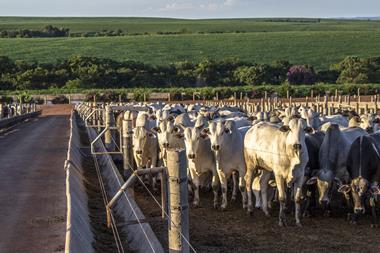
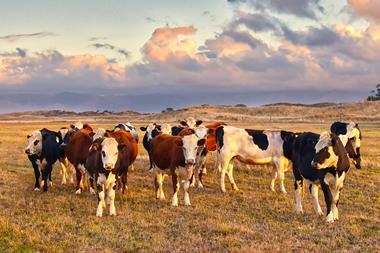
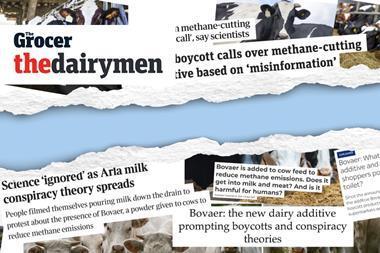
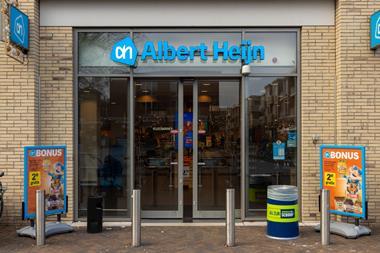






No comments yet